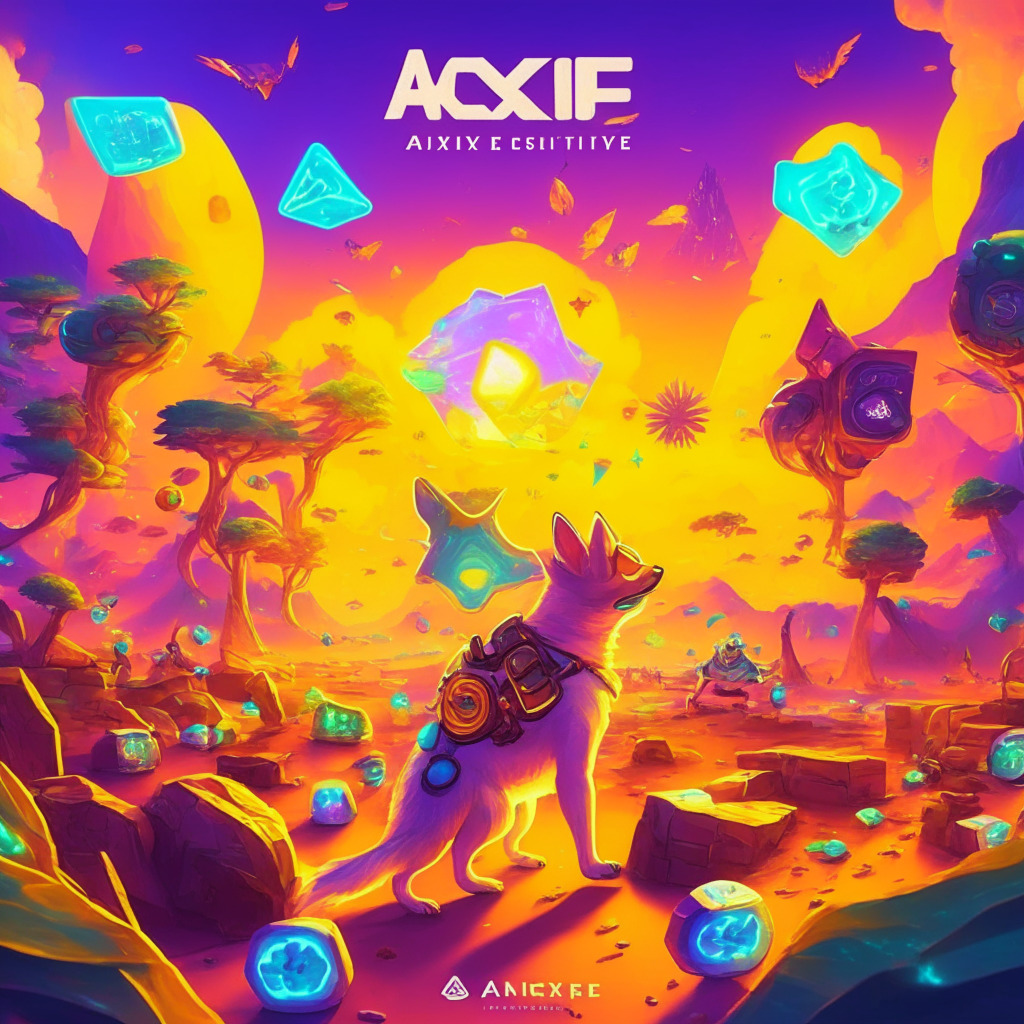“Space and Time, a decentralized Web3 data service, has launched a tool powered by Zero-knowledge proof technology for SQL queries. The company’s Proof of SQL ensures data integrity in its decentralized network, enhancing data security for retail, finance, gaming, and blockchain-based solutions.”
Search Results for: large language model
Curbing The AI ‘Spam Siege’: A Cryptocurrency Solution From The Past Could Light The Way
The rise of AI-generated texts, especially spams, mirrors early cryptocurrency challenges of email spam. A solution may lie in the crypto concept, similar to Adam Back’s “Hashcash”, by attaching a cost to actions to curb frivolous use of resources.
Decoding the Deterioration of ChatGPT: A Challenging Epoch for AI Progress
A study from Stanford and UC Berkeley reported significant deteriorations in ChatGPT’s abilities over a few months, with its accuracy in identifying prime numbers falling from 97.6% accuracy rate to a mere 2.4%. This onset decline in AI’s performance highlights the need for regular monitoring and quality checks of such complex, evolving systems.
Exploring the Convergence of Bitcoin and AI: Lightning Labs’ Pioneering Solutions
Lightning Labs is developing a suite of tools aimed at promoting the integration of Bitcoin and AI applications. Key features include the LangChainBitcoin and L402 HTTP API Traversal, as well as Aperture, which turns any API into a pay-per-use resource. These tools could provide new revenue streams, despite potential for increased end-user fees due to fraud expenses.
Unlocking AI Potential with Bitcoin Transactions: A Leap Towards the Future or a Risky Move?
“Lightning Labs is creating innovative tools that enable AI applications to manage Bitcoin transactions. Transitioning from traditional payment methods, the proprietary tools combine high-frequency Bitcoin micropayments with popular AI software libraries. This new approach reduces costs and broadens AI software access, paving the way for unprecedented AI applications.”
Integrating AI in Crypto Trading: Promising Revolution or Risky Venture?
“The union of AI with crypto trading can transform the financial sector, believes ex-FTX.US CEO, Brett Harrison. His venture, Architect, offers algorithmic trading code for crypto using AI tools, extending sophisticated investment tools to retail traders and financial institutions. Future developments might integrate advanced market indicators into the trading process.”
Generative AI and Blockchain: A Harmonious Match or Uneasy Alliance?
Generative AI’s integration with Web3 and the idea of a blockchain specifically for generative AI is gathering interest, given the centralized control concerns of AI foundation models. Open-source models might ease their adoption on Web3 platforms, making blockchain architectures a promising solution for transparency issues. However, constructing a specialized blockchain for generative AI comes with challenges that need thoughtful consideration and collective action.
Hive Blockchain’s Bold Move: Shifting from Cryptomining to AI Data Center Services
Hive Blockchain, a major Bitcoin mining farm, recently announced its ambition to extend customer access to its data centers, offering enhanced privacy for training large AI language models – distinctly setting it apart from rivals such as OpenAI’s ChatGPT. The company’s shift towards GPU rentals for AI training questions the traditional understanding of mining operations and its long-term viability.
Hive Blockchain: Pioneering the Move from Crypto Mining to AI with Promises of Superior Privacy
“Hive Blockchain aims to leverage the intersection of big data, privacy, and cryptocurrency. Declaring an intent to facilitate AI training within its data centers, Hive differentiates itself with promises of superior data privacy. The company’s strategic shift signifies a gradual transition of mining enterprises towards the booming AI sector.”
Blockchain vs. AI Fake News: Can Crypto Tech Save the Media Industry?
Blockchain technology could potentially save the media industry from AI-driven fake news by introducing “sign-and-trace” systems for content authentication. This would enable reliable sourcing, validation, and tracking of real news stories, promoting transparency and combating misinformation.
Revolutionizing AI Imagery: Stability AI’s SDXL v0.9 Takes on Rivals with Ultra-Photorealism
AI startup Stability AI’s latest version of image generator, Stable Diffusion XL (SDXL) v0.9, offers ultra-photorealistic imagery and enhanced response to text-based prompts. The improved model simplifies communication and rivals competitors like MidJourney, reshaping AI-based image generation, design, and marketing.
Exploring the Fusion of AI and Bitcoin Mining: Opportunities and Hurdles in High-Performance Computing
Iris Energy aims to integrate high-performance computing with bitcoin mining, in line with the growing interest in AI. The AI-driven data center space is predicted to grow to $76 billion by 2028, and companies like Iris Energy see potential in combining these technology domains despite the challenges they may face.
7 ChatGPT Alternatives: Exploring the Future of Conversational AI Platforms
Explore seven ChatGPT alternatives, including Google Bard, Bing AI, ChatSonic, You.com, Jasper AI, Perplexity AI, and GitHub Copilot, each offering unique features for different natural language processing tasks. Catering to diverse user needs, find the best AI-driven tool to suit your requirements.
Detecting AI-Generated Academic Writing: A Race for Authenticity and New Detection Methods
Researchers at the University of Kansas have developed a method to identify AI-generated academic science writing with over 99% accuracy, addressing the growing need to differentiate between human and AI-generated writing in higher education and scholarly works. This arms race between AI advancements and detection methods requires academics, educators, and students to remain vigilant.
AI Developer Regulation Debate: Balancing Innovation and Safety Risks
The lack of regulation of AI development concerns Labour Party’s digital spokesperson, Lucy Powell, who calls for licensing and regulating AI like pharmaceutical, medical, or nuclear industries. As AI becomes more powerful, proper regulation and safety measures are essential to minimize risks and maximize benefits of this rapidly evolving technology.
ChatGPT Revolutionizes Crypto Risk Management: Pros, Cons, and Main Conflicts
Elliptic plans to integrate ChatGPT into off-chain intelligence and research gathering efforts, boosting efficiency in data organization, fraud detection, and security. This AI chatbot may revolutionize risk detection and user experience in the crypto ecosystem, but vigilance and ongoing research are necessary to maintain security and integrity.
ChatGPT Integration in Blockchain Intelligence: Revolution or Job Threat?
UK-based crypto analytics firm Elliptic is incorporating AI chatbot ChatGPT to enhance its team’s efficiency in tracking cybercriminals. This integration aims to improve the accuracy, scalability, and organization of intelligence on new risk factors, while also raising concerns about job automation.
Top Generative AI Courses to Master ChatGPT, Bard, and Beyond: Stay Ahead in the Tech World
This compilation of top-notch courses, including “ChatGPT Prompt Engineering for Developers” and “LangChain for LLM Application Development,” offers valuable insight for developers and enthusiasts to enhance their understanding of generative AI and stay at the forefront of this transformative technology.
AI vs Human Auditors in Smart Contract Security: Efficiency, Limitations, and Future Prospects
Blockchain security firm OpenZeppelin tested AI’s capacity to replace human auditors in smart contract auditing using OpenAI’s ChatGPT-4. While the AI model solved 20 of 28 Ethernaut security challenges, it’s not yet ready to replace human auditors. However, AI can improve auditor efficiency and detect vulnerabilities, indicating a potential for tailored AI models to enhance Web3 security auditing.
AI Regulation in Australia: Debating Bans on High-Risk Technologies and Criteria for Assessment
The Australian government is assessing potential risks associated with artificial intelligence (AI) by launching an eight-week consultation on high-risk AI tools. The consultation aims to gather feedback for promoting safe and responsible AI use, discussing ethical frameworks and possible regulations. This initiative reflects global efforts to understand and mitigate the risks in AI development.
AI Chatbot ChatGPT Enters Crypto Forecasting: Will Wall Street Memes Token Soar?
This article discusses how ChatGPT, a generative AI technology, could potentially predict stock price movements, such as the Wall Street Memes $WSM token. Although not providing exact forecasts, ChatGPT suggests that meme coins like $WSM could experience price appreciation if they have a strong community and hype. The $WSM token aims to empower individual investors and has allocated 100% of its supply to the community. However, due caution must be exercised as the cryptocurrency market is highly speculative and volatile.
AI Trading: ChatGPT Gains Followers, But Is Caution Necessary? The Great Debate Unfolds
The GPT Portfolio experiment has attracted 25,000 investors, betting a combined $14.7 million on AI’s stock picks. However, concerns about misinformation and job losses due to AI automation urge caution in relying solely on AI-driven tools for trading decisions.
JPMorgan’s IndexGPT Entry & AI Future: Balancing Innovation with Privacy Concerns
JPMorgan Chase files trademark application for IndexGPT, an AI tool for various business units, highlighting the importance of AI for future success. Amid exciting AI applications, concerns over data privacy and security must be carefully considered, balancing innovation and privacy.
Pandemic-Accelerated AI Boom: Impact on Tech Stocks and Balancing Market Optimism
Pandemic-fueled innovation in AI has catalyzed unprecedented growth in the tech industry, benefiting hardware manufacturers like NVIDIA, and software companies including Meta and Microsoft. Amid financial boons, a balance of optimism and caution is required to navigate AI’s evolving landscape and potential pitfalls.
AI Celeb Avatars: Innovations, Ethics, and The Future of Human-AI Interaction
Prominent Twitch streamer Kaitlyn “Amouranth” Siragusa has introduced an AI-powered virtual avatar, offering interactive experiences for fans. As AI models advance, questions arise regarding their possible replacement of professionals and ethical implications in complex human relationships. Companies like Forever Voices work to address these concerns.
Billionaire Battle: How Elon Musk’s Twitter Data Could Tip the AI Race and Its Implications
Billionaire investor Mark Cuban discusses the AI race between companies like OpenAI, Google, Meta, and Microsoft, and believes Elon Musk may have an advantage due to his access to Twitter data for training AI models. Cuban highlights the importance of intellectual property and data in developing Large Knowledge Models.
Axie Infinity and AiDoge: Crypto Community’s Exciting Future with Gaming and AI Memes
Axie Infinity’s AXS surged +20% as Origins became accessible to Apple users in South America and Asia. Meanwhile, AiDoge, an AI-driven meme generator, raised $8.5 million in its presale, exceeding expectations and drawing interest from crypto enthusiasts seeking the next breakout meme coin.
yPredict’s AI-Powered Trading Revolution: Opportunities, Risks, and Tokenomics Explained
The crypto trading industry eagerly anticipates yPredict’s AI-powered trading platform, combining AI signals, pattern recognition, and social sentiment for valuable market insights. With $YPRED tokens set for a potential 140% gain at the Initial Exchange Offering, investors are rushing to secure tokens before the 28.5% price increase.
Google’s AI Revolution: PaLM 2, Gemini, and the Future of Search Engines & Consumer Experiences
Google’s recent announcements at the annual Google I/O conference reveal AI-backed features, like the updated Pathways Language Model (PaLM 2), which improves reasoning, coding, and multilingual capabilities. Integrated into 25 apps, PaLM 2’s advancements signal significant changes in search engines and AI integration, with forthcoming Gemini offering even more advanced capabilities.
Wendy’s AI Chatbot Revolution: Enhancing Customer Experience or Threatening Jobs?
Wendy’s introduces an AI-powered chatbot, developed using Google’s natural-language software, to streamline the ordering process, enhance drive-thru experiences, and boost sales. While replicating human interactions is challenging, Wendy’s aims to improve efficiency without replacing human labor.
AI’s Impact on Job Market: Banking, Healthcare, and Creative Industries – What’s at Stake?
AI’s rapid growth brings potential job displacement in sectors like banking and healthcare. However, developing creative or analytical thinking abilities and mastering AI-related tools can help workers avoid replacement. Continual skill development and adaptation are vital in today’s technological landscape.
AI Coin Mania: AiDoge’s Rise and Revamping the World of Meme Creation
AiDoge, an AI coin project, raises $2.5 million as it combines AI and meme coins through a meme creator using image-generating AI technology. The platform aims to revolutionize meme creation, democratize the process, and transform internet communication.






























